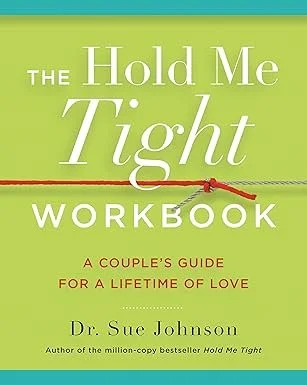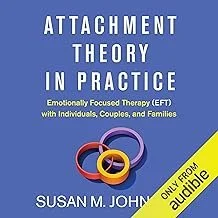Emotionally Focused Therapy: Why we use EFT to help couples thrive
Understanding Emotionally Focused Therapy: A Path to Stronger Relationships
Emotionally Focused Therapy (EFT) is a powerful, evidence-based approach to strengthening relationships and emotional well-being. Designed to help couples, individuals, and families foster secure connections, EFT is grounded in the idea that emotions play a key role in building meaningful bonds. Let’s explore what EFT is, how it works, and why it’s so effective.
What is Emotionally Focused Therapy?
Developed in the 1980s by Dr. Sue Johnson and Dr. Les Greenberg, EFT is a structured, short-term therapy rooted in attachment theory. It recognizes that humans have a fundamental need for safe, emotional connections, and distress often arises when these bonds are disrupted. EFT guides clients to process and express emotions to create healthier relationship patterns. While primarily used for couples, it’s also effective for individuals and families.
The Three Stages of EFT
EFT follows a clear, three-stage process to help clients build stronger connections:
1. De-escalation: This stage involves identifying negative interaction patterns, such as one person pursuing while the other withdraws. The focus is on understanding the underlying emotions driving these cycles and creating a safe space to reduce conflict.
2. Restructuring Interactions: Clients are guided to express deeper emotions and attachment needs openly, such as saying, “I feel disconnected when we don’t talk,” rather than, “You never listen.” This fosters empathy and builds trust.
3. Consolidation and Integration: In the final stage, clients practice new ways of connecting to make them sustainable, ensuring relationships remain strong outside of therapy.
Why EFT is Effective
EFT stands out for its research-backed approach and focus on universal human needs. There are several reasons why EFT resonates with many:
• Grounded in Attachment Theory: EFT addresses the core need for secure emotional bonds, tackling the root of relational distress rather than just surface issues.
• Emotion-Driven Change: By viewing emotions as valuable signals, EFT helps clients use their feelings to foster understanding and connection.
• Proven Results: Studies show 70-75% of couples move from distress to recovery with EFT, and 90% report significant improvement. It’s also effective for individual challenges like anxiety, depression, or trauma.
• Versatile Applications: EFT adapts seamlessly to couples seeking to rebuild intimacy, individuals addressing personal struggles through EFIT, or families resolving conflicts with EFFT.
Who Can Benefit from EFT?
EFT is well-suited for:
• Couples: Those facing communication breakdowns, frequent conflicts, or emotional distance can use EFT to restore trust and closeness.
• Individuals: Supports people navigating emotional challenges, low self-esteem, or past attachment issues.
• Families: Can help families address tensions, strengthen bonds, or work through issues like parenting struggles or intergenerational conflicts.
Core Principles of EFT
EFT is guided by a few key ideas:
1. A Safe Environment: Therapy provides a nonjudgmental space for clients to explore and share emotions freely.
2. Emotions as a Guide: Feelings are used as a roadmap to understand needs and foster connection.
3. Collaborative Process: We as therapists work alongside clients to co-create healthier patterns of interaction.
How to Get Started with EFT
If EFT sounds like a good fit, here’s how to begin:
- Set Realistic Expectations: EFT is typically short-term (8-20 sessions for couples), but progress depends on individual circumstances and commitment.
- Embrace Emotional Openness: EFT involves sharing authentic emotions, which can feel vulnerable but is central to its effectiveness.
-Give Balance and Bloom a call: We have therapists who are trained in EFT and would love to guide you through your journey to healing and change.
Emotionally Focused Therapy offers a compassionate, research-supported path to building stronger, more secure relationships. By focusing on emotions and attachment needs, EFT helps clients move from disconnection to deeper understanding and trust. Whether you’re a couple seeking to rekindle intimacy, an individual exploring personal growth, or a family aiming to heal, EFT provides a structured yet flexible approach to lasting change.
If you’re looking for more resources or books to read, check these out!




